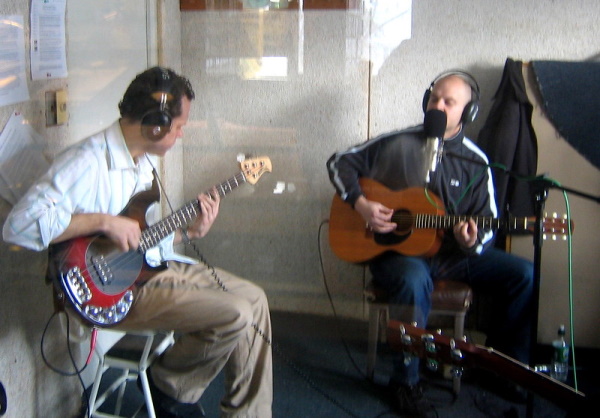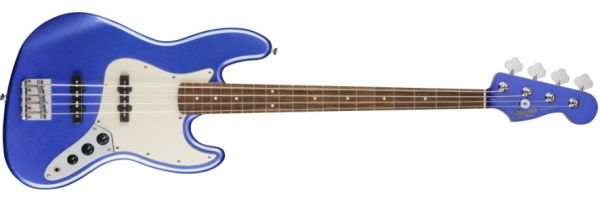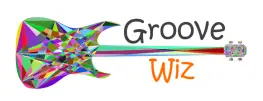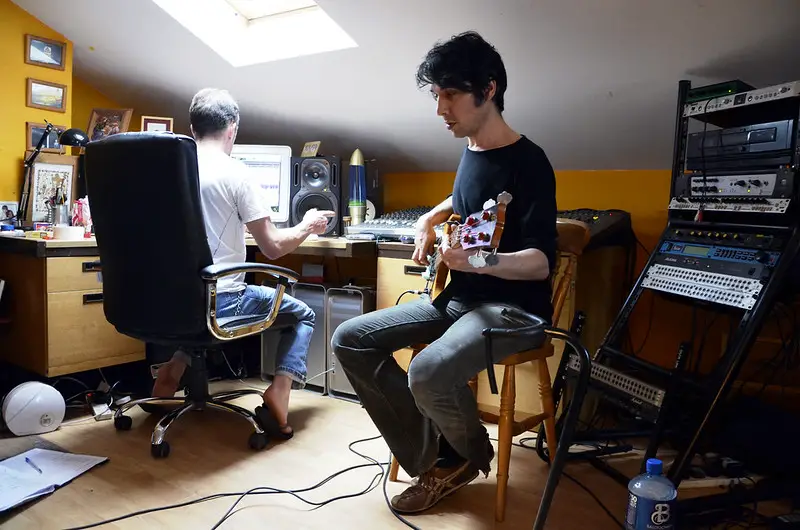If you’re a studio owner or a musician recording at home, having a good, dependable bass guitar available for recording is important.
For studio owners, many clients will be guitarists who only play bass guitar from time to time. Chances are, they won’t own one. So, you’ll need a quality, versatile bass guitar that they’re comfortable playing.
If you’re a home musician, having a good bass guitar to record will make a big difference to the quality of your recording.
There are lots of basses that sound great in a live setting but aren’t ideal for recording. The best bass guitar for recording is something that works across different styles of music and is familiar to even the most casual bass players. It should be well-built, playable and have a good setup, with pickups that produce a good clean signal.
While there are many quality basses such as Lakelands and Warwicks that sound good in a recording situation, something like a Fender Jazz bass is generally a good type of bass guitar to have in a studio environment. It’s like having a Neumann U87 mic and a couple of SM58s mic – these are standard equipment that are affordable, reliable and adaptable.
An American-made Fender Jazz bass will sound good in almost any recording situation and most musicians will be familiar with it. Even experienced bass players will appreciate playing one – although they’re more likely to bring their own bass to a recording session.
Table of Contents
J-bass vs P-bass vs PJ-bass for a recording studio
Standard Fender Precision (P bass) and Fender Jazz (J bass) guitars are excellent all-rounders. There’s such a wide variety of sounds you can get from these bass guitars, which is part of the reason they’re so popular.
This makes both the P bass and the J bass a great choice for recording. They suit many different genres, from pop and standard rock to jazz and blues. I recommend investing in a good DI box to get the best out of these great guitars.
Of the two, J basses are more flexible. They have two single-coil pickups, which produce a really nice clean tone with a full mid-range. A good J bass can even (almost) replicate the tone of a P bass.
A P bass has split coil pickups that give it a solid, classic bass tone. While it’s a little less flexible than a J bass (more of a single tone), it has a great sound that works well with most types of music.
The Precision Jazz (PJ bass) is built like a standard P bass but with a wider neck, and has a single-coil bridge pickup to get that J bass tone. The Fender Reggie Hamilton is a good example of a quality PJ bass. It has a similar build to a standard P bass although it has a smaller body and weighs a little less (4kg vs the P bass’s 4.3kg).
The Hamilton has a thicker, jazz-style neck and a blend of J-bass and P-bass pickups, so you get a mix of tones and the best of both worlds. As a result, it’s a great bass to record lots of different types of music.
Non-Fender alternatives

There are also a few good alternatives beyond Fender basses for recording. Generally speaking, a set-neck (neck-through) bass guitars are a better choice than bolt-ons as the tonal-transfer is better. This will give you a warmer, fuller sound.
A good example is the Ernie Ball Music Man Stingray. They’re really versatile guitars that can give you a wide range of tones. Their prices range anywhere between $500 and $2,000.
The G&L SB-1 is also an ideal studio bass. It’s a no-frills bass guitar that does a great job of producing a nice mix of tones. The G&L brand and product line was created by Leo Fender in the early 80s based on Fender instrument designs with modern electronics. While G&L doesn’t have the prestige of the Fender or Rickenbacker brand names, it’s a beautifully balanced guitar that fits well in any studio.
Other great basses for recording include Rickenbackers, Warwicks and Pedullas, all of which have a variety of beautiful, rich tones and good harmonic structure. Also often-vetted for recording are the Hofner Ignition Club, the Hofner HCT Galaxie and the Ibanez 5 String sr885. All of these will give you a smooth, rich, classic sound for a good price.
Some bassists choose to invest in a boutique bass for recording. The best boutique basses are handcrafted to perfection, set-neck built from the best quality wood, and have a high-end mix of pickups, giving you a wide variety of tones when recording.
Active vs passive pickups for recording
If you’re recording bass in a studio with decent equipment, there’s no need to use a bass with active pickups. All of the tonal options that active pickups bring, while great in a live setting, are pointless in the studio.
With a good recording set up, good converters, preamps and a decent sound card, you can perfect the tone, making EQ adjustments before, during and after takes. The quality of the studio equipment used to find that tone is going to be far better than any active bass’s electronics.
Some active basses actually don’t use active pickups. For instance, the Fender Active basses use passive pickups connected to an active preamp with a built-in EQ. These might sound okay in a live setting, but are not ideal for studio recording – again, studio gear usually will outperforms onboard electronics.
Active pickups typically produce noise in between notes when recording. A good engineer will be able to get around this, but save them the job and get a bass with passive pickups.
Active basses can also be a hassle to get serviced, as the electronics are mounted on a PC board. Another thing is, you’ll be forever changing the batteries on your pickups.
It’s worth noting that certain situations can benefit from using active pickups. Some genres like metal and hard rock, call for high distorted sounds. Slapping with active pickups can produce rich and interesting sounds. Nevertheless, the sound achieved by an active pickup can often be replicated and improved upon in a studio.
Best budget bass for home recording

If you’re recording at home, a decent audio interface and DAW, together with a cheap, reliable bass guitar are all you need to record simple bass lines.
Get a nice playable bass with a decent setup. Something with adjustable saddles, to tweak the intonation, and adjustable neck-relief, to set the action to a comfortable height, getting rid of any string buzz.
In terms of tone, nothing fancy is needed here – you’ll be able to add EQ and effects after you’ve laid down the bass line, using plugins on your DAW.
Remember, passive is best. Active pickups aren’t needed for recording, especially when you’re recording on a budget at home. Their tonal versatility is useless when you have so many options through your DAW.
Also, the electronics on active pickups can cause problems when recording that sometimes can’t be cleaned up in the mix. Passives send a clean signal to your DAW. While it’s true that some active basses, like G&L, work well with a professional signal chain, passive pickups are definitely the way to go.
When it comes to the best budget bass for recording, Mexican-made Squiers are a very good option. Both the Squier P bass and J bass are very cheap (around $200–$300) and perfect for home musicians who don’t regularly play the bass, but want to lay bass lines down for songs. The Squier Vintage Mod Jazz is a favorite – especially the pre-2014 models with their great sounding Duncan pickups.
Rondo and SX bass guitars are also great budget guitars for home recording. Rondos are like solid Fender copies and SX basses are regarded by many pro musicians as the best budget basses around. The jazz and precision models of the SX are very playable and cost between $150–$300.
You could also look for a used Yamaha RBX or Peavey in good condition for recording at home. Both are excellent mid-range bass guitars that can be bought second hand for a good price. Yamaha BB414s are also great all-round basses – very well made and easy to play. You can sometimes pick them up second hand for under $200.
If you’re looking for a very good mid-range bass guitar for recording, a G&L L2000 Tribute is ideal. G&Ls are a great value for money bass guitar and the Tribute ones are extra special. You might be able to get one second hand for around $500.
If you can, try out the guitar before you buy it. Probably the most important thing when it comes to a good bass guitar for recording is playability. If it feels good to play, you’ll have a better chance at laying down some solid bass lines. Your production skills can take care of the rest.
***
Photo credits:
Featured image: “Edgar Jones” (CC BY-SA 2.0) by Marc Wathieu
(2) “bassist Josh Denkmire & Doug Cowan of b” (CC BY 2.0) by Ctd 2005
(3) Courtesy of Fender

